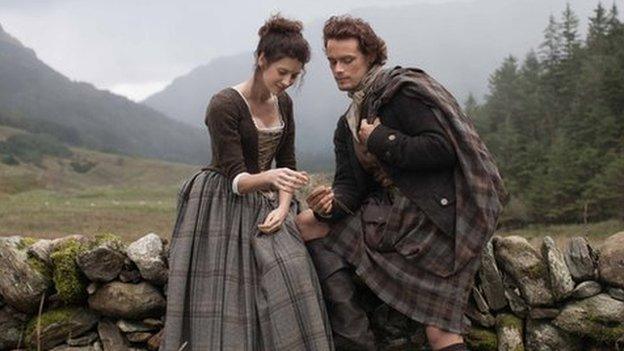Scottish studio 'will happen' says Creative Scotland director of film
- Published
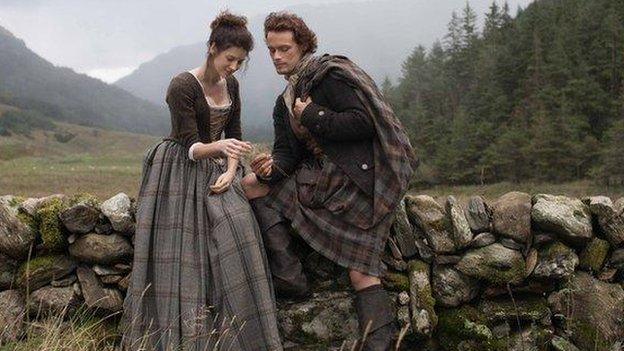
The television series Outlander was filmed on location in Scotland
Creative Scotland's director of film says she believes a national film studio will happen, despite criticism from key figures in the industry about lengthy delays.
Natalie Usher told BBC Radio Scotland the delays were due to the complications of working with the private sector.
The plan being considered is for a studio in Cumbernauld, close to the site used by the TV series Outlander.
Talks on the project are ongoing.
Ms Usher, a member of the Film Studio Delivery Group, was set up three years ago, said: "We want a private sector led studio and we are committed to deliver that for Scotland. It is essential.
"It is notoriously difficult to make a studio work. We are committed to delivering it but it's not easy."
'Fantastic proposition'
Creative Scotland and Scottish Enterprise have been in talks with a private developer since last year.
In the meantime, a second proposal - entirely privately funded - has been submitted.
Pentland Studios Ltd want to build a combined Film Studio and backlot on a 50-acre site at Straiton, Midlothian.
But Midlothian Council has so far failed to give planning permission, and the company has asked the Scottish government to call it in for further inquiry.
Ms Usher said Creative Scotland was happy to support the project - as well as developing a public studio option.
"We are open to other proposals - not just one thing," she said.
"Pentlands is a mixed-use facility. It's a fantastic proposition which we would be happy to see happen."
But those who work in the industry believe Scotland is in danger of missing out to other more pro-active areas of the UK.
Tax advantage
Mandy Sykes who has worked as an actress and a director said: "The backers aren't going to be around for ever.
"This low ambition, 'make do and mend' attitude is not going to work. We need to raise the ceiling in Scotland or we will never have a film industry which supplies and supports and creates wealth for our workers."
She's one of thousands who've signed a petition supporting the Pentlands Studio, but she believes it doesn't rule out a public studio as well.
"There's room for both. This would start a system of studios but it's important to do something now. It's there to go. It just needs planning permission," she said.
"We're losing business at the moment. There were six feature films that filmed here in 2011 - and they all went back to London to do their studio work. So we got 0.6 % of the UK share. We are losing out on that money which would filter down to indigenous films and local crews."
Assistant director Tommy Gormley agrees. Earlier this week, he wrote an open letter to Creative Scotland and Scottish Enterprise to say he thought any further delay in building a studio would be "catastrophic" for the industry.
"At the moment the UK tax advantage for film making is extremely attractive," he said.
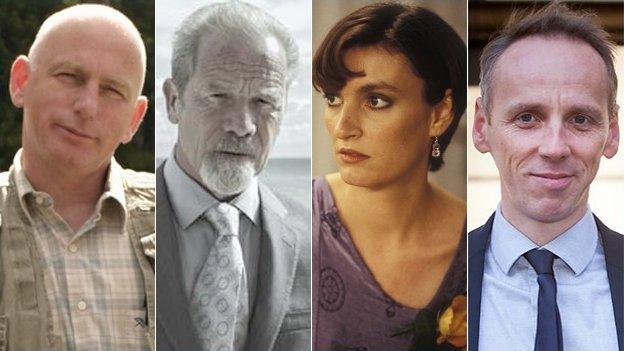
In 2014 some of Scotland best-known actors signed an open letter calling for a studio based in Glasgow
"Film making is an amazing fusion of industry and art and that industrial process brings a lot of work, a lot of jobs and we're missing out on that.
"Ten years ago, the Northern Ireland industry was nowhere and now they're massively overtaking us. The studios in Northern Ireland and Wales are not a drain on resources. They are bringing money to those countries."
He added: "I'm not asking for a publicly financed studio. It could be private. It could be public. It could be either/or but the lack of ambition from the people in charge, I find quite staggering."
He also warned of a talent drain.
"Scotland is not a backwater, never has been, but we are gradually losing our crew base. I was on the set of Wonder Woman yesterday and I counted nine highly skilled Scottish technicians in London because nothing was happening in their home country.
"Scotland has the personnel available but they're gradually being leeched away because there's nothing happening and the spend is so low."
'Not a backwater'
But not everyone agrees that a public film studio is a wise investment.
Michael Caton Jones, director of Rob Roy and Memphis Belle, whose latest film Urban Hymn had its UK premiere at the Glasgow Film Festival this weekend, is not convinced.
"I think it's a red herring," to be honest, he said.
"It would be useful to someone who owns a studio. Will it make a business? I'm not so sure, just an aspect of the business.
"Film follows money is the tenet. In my time, I have seen the Irish film industry become popular because of tax credits, the Australian, Czech, Hungarian. All of these places made it financially attractive and viable."
He added: "A studio is four walls. It needs to be fed. It doesn't make an industry. When I made Rob Roy we simply needed a big building.
"We ended up using a distillery warehouse in Fort William and a shed in Perth. It didn't stop us coming because what we wanted was the exteriors and that's what's unique to Scotland.
- Published4 February 2015
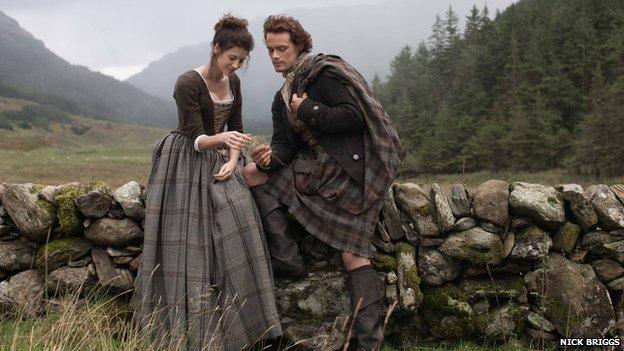
- Published21 January 2015
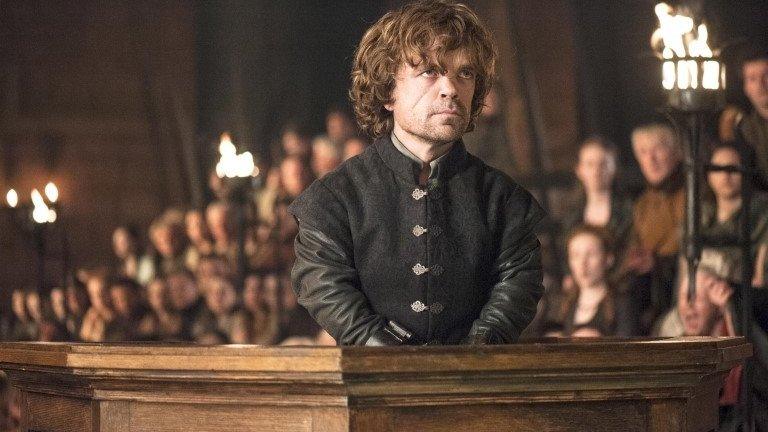
- Published11 December 2014
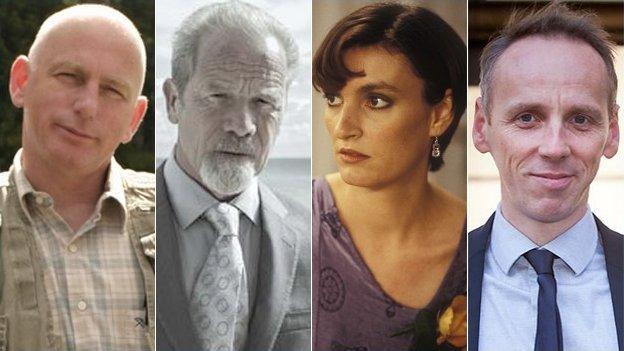
- Published14 March 2014
